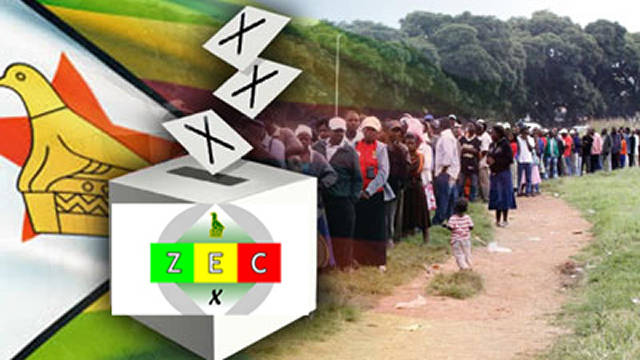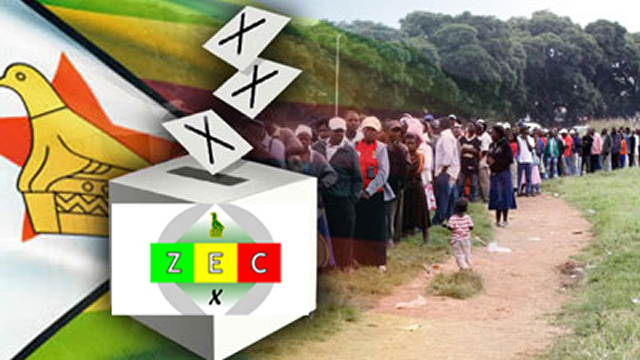
The Sunday News

Micheal Mhlanga
Few months out from one of the most important elections in our history, in a crushingly divisive political climate, with two candidates who have been with their parties from their inception, many voters still don’t know what they’re going to do, come Election Day.
The existing indecision begs for answers. So what could compel them to do a gas mask and vote for one of any of these two candidates between Cde Emmerson Mnangagwa and Advocate Nelson Chamisa? What could possibly make up their minds?
Are they sure of their first critical decision since this is their first time to cast a ballot?
In every presidential-election year, there are news stories about undecided voters, people who say they are perplexed about which candidate’s positions make the most sense.
They tell reporters things like “I’d like to know more about the ruling party’s plan for education,” or “I’m worried that opposition’s ideas about Social Welfare don’t add up.” They say that they are thinking about issues like “trust” and whether the candidate cares about people like them.
To voters who identify strongly with a political party, the undecided voter is almost an alien life form.
For them, a vote for opposition is a vote for a whole philosophy of governance and a vote for the ruling party is a vote for a distinctly different philosophy.
The difference is obvious to them, and they don’t understand how others can’t see it, or can decide whom to vote for on the basis of a candidate’s personal traits or whether his or her position on a particular issue “makes sense.”
To an undecided voter, on the other hand, the person who always votes for the ruling party or a certain opposition, no matter what, must seem like a dangerous fanatic. If I may ask which voter is behaving more rationally and responsibly?
Firstly, electoral outcomes, as far as “the will of the people” is concerned, are essentially arbitrary.
The fraction of the electorate that responds to substantive political arguments is hugely outweighed by the fraction that responds to slogans, misinformation, “fire alarms” (sensational news), “October surprises” (last-minute sensational news), random personal associations, and “gotchas.”
Even when people think that they are thinking in political terms, even when they believe that they are analysing candidates on the basis of their positions on issues, they are usually operating behind a veil of political ignorance.
They simply don’t understand, as a practical matter, what it means to be fiscally conservative, or to have faith in the private sector, or to pursue an interventionist domestic policy. They cannot hook up positions with policies.
From the point of view of democratic theory, Zimbabwean political history is just a random walk through a series of electoral options. Some years, things turn up green; some years, they turn up yellow and in one, it almost turned red.
Although people may not be working with a full deck of information and beliefs, their preferences are dictated by something, and that something is elite opinion.
Political campaigns, on this notion, are essentially struggles among the elite, the fraction of a fraction of voters who have the knowledge and the ideological chops to understand the substantive differences between the candidates and to argue their policy implications.
These voters communicate their preferences to the rest of the electorate by various cues, low-content phrases and images to which voters can relate, and these cues determine the outcome of the race. I am compelled to be a realist and tell you that democracies are really oligarchies with a populist face.
Moreover, democratic politics is the idea that the cues to which most voters respond are, in fact, adequate bases on which to form political preferences.
People use shortcuts, the social-scientific term is “heuristics”; to reach judgments about political candidates, and, on the whole, these shortcuts are as good as the long and winding road of reading party platforms, listening to candidate debates, and all the other elements of civic duty.
Voters use what Samuel Popkin, one of the proponents of electoral theorisation, calls “low-information rationality”. In other words, gut reasoning to reach political decisions; and this intuitive form of judgment proves a good enough substitute for its high-information counterpart in reflecting what people want.
After all has been said, indubitably, the principal shortcut that people use in deciding which candidates to vote for is, of course, the political party.
The party is the ultimate Malume Dons in Zimbabwean politics. Even elite voters use it when they are confronted, in the voting booth, with candidates whose names they have never seen before.
There is nothing in the Constitution requiring candidates to be listed on the ballot with their party affiliations.
It is easy to imagine a constitutional challenge to the practice of identifying candidates by party, but it is also easy to imagine how wild the effects would be if voters were confronted by a simple list of names with no identifying tags.
Every election would be like an election for student-body president: pure name recognition.
Any time information is lacking or uncertain, a shortcut is generally better than nothing. But the shortcut itself is not a faster way of doing the math; it’s a way of skipping the math altogether.
My hunch that the coolest-looking hi-fi component is the best value simply does not reflect an intuitive grasp of electronics.
My interest in a stereo is best served if I choose the finest sound for the money, as my interest in an election is best served if I choose the candidate whose policies are most likely to benefit me or the people I care about. But almost no one calculates in so abstract a fashion.
Even voters who supported Michael Dukakis in 1988 American elections agreed that he looked ridiculous wearing a weird helmet when he went for a ride in a tank, and a lot of those people felt that, taken together with other evidence of his manner and style of self-expression, the image was not irrelevant to the substance of his campaign.
George H W Bush underwent a similar moment in 1992, when he was caught showing astonishment at the existence of scanners at supermarket checkout counters. Ideologues opposed to Bush were pleased to propose this as what psychologists call a “fast and frugal” means of assessing the likely effects of his economic policies.
One shortcut that voters take, and that generally receives approval from the elite, is pocketbook voting.
This is when voters are feeling flush, they vote for the incumbent; if they are feeling strapped, they vote for change. But, as Larry Bartels, the co-author of the paper on Gore and the weather, has pointed out, pocketbook voting would be rational only if it could be shown that replacing the incumbent did lead, on average, to better economic times.
Without such a demonstration, a vote based on the condition of one’s pocketbook is no more rational than a vote based on the condition of one’s lawn. It’s a hunch.
Most voters simply do not make a connection between tax policy and the overall economic condition of the country, most people are not financially literate yet politics takes a toll on the economics of the country. Whatever heuristic method they are using, it is definitely not doing the math for them.
But who ever does the math? As Popkin points out, everybody uses heuristics, including the elite.
Most of the debate among opinion-makers is conducted in shorthand, and even well-informed voters rely on endorsements and party affiliations to make their choices. The very essence of being an ideologue lies in trusting the label: liberal or conservative, ruling or opposition.
Those are “bundling” terms: they pull together a dozen positions on individual issues under a single handy rubric. They do the work of assessment for you.
It is widely assumed that the upcoming Presidential election will be decided by an electorate that is far more ideological than has historically been the case.
So far, petty polls indicate much less volatility than usual, supporting the view that the public is divided into starkly antagonistic camps the “new-dispensation-generational-consensus” paradigm.
If this is so, it suggests that we have at last moved past the skewed pictures of an electoral iceberg, in which ninety per cent of the electorate is politically under water.
But Richard Mahomva, a political scientist at LAN, thinks that it is not so, and that the polarised electorate is a product of elite opinion.
“The simple truth is that there is no culture. Beer hall-opinion polls, he argues, show that on most hot-button issues voters in so-called liberal camps do not differ significantly from voters in so-called conservatively nationalistic camp.
Who shall decide 2018? As I say . . . #2018willtell.
Yikho Khona lokhu!!




